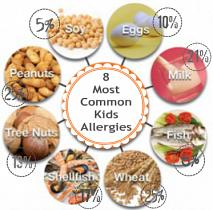Are GMOs Causing More Food Allergies?
(NC) Allergens in food are a common concern, one that's often amplified when linked to perceptions around genetically modified foods. In the United States for example, the prevalence of childhood allergies has increased by more than 50 per cent in the last 20 years. Coincidentally, that's also how long GMO crops have been on the market — so are GMO crops the cause of increased allergies?
The short answer is no, according to food and nutrition experts at gmoanswers.com. That's because food from GMO crops is the same as food from non-GMO crops, so it's digested by the human body in the same way. Since GMO crops have been grown, there hasn't been a single documented instance of harm to human health — including allergic reactions — resulting from genetic modification.
Health Canada's list of major food allergens includes milk, eggs, peanuts, tree nuts, soy, wheat, seafood, sesame and mustard. Of these, only soybeans have GMO varieties available for farmers to grow. Of the remaining allergens listed, none are commercially available in genetically modified varieties.
In fact, GMO technology can actually help solve food allergen problems. Work is underway to develop allergen-reduced peanut varieties, while a team of Spanish researchers is developing gluten-free wheat for celiac sufferers. In Japan, researchers are working on allergen-free rice, which would bring relief to those sensitive to this dietary staple.
Comments
There are 0 comments on this post













